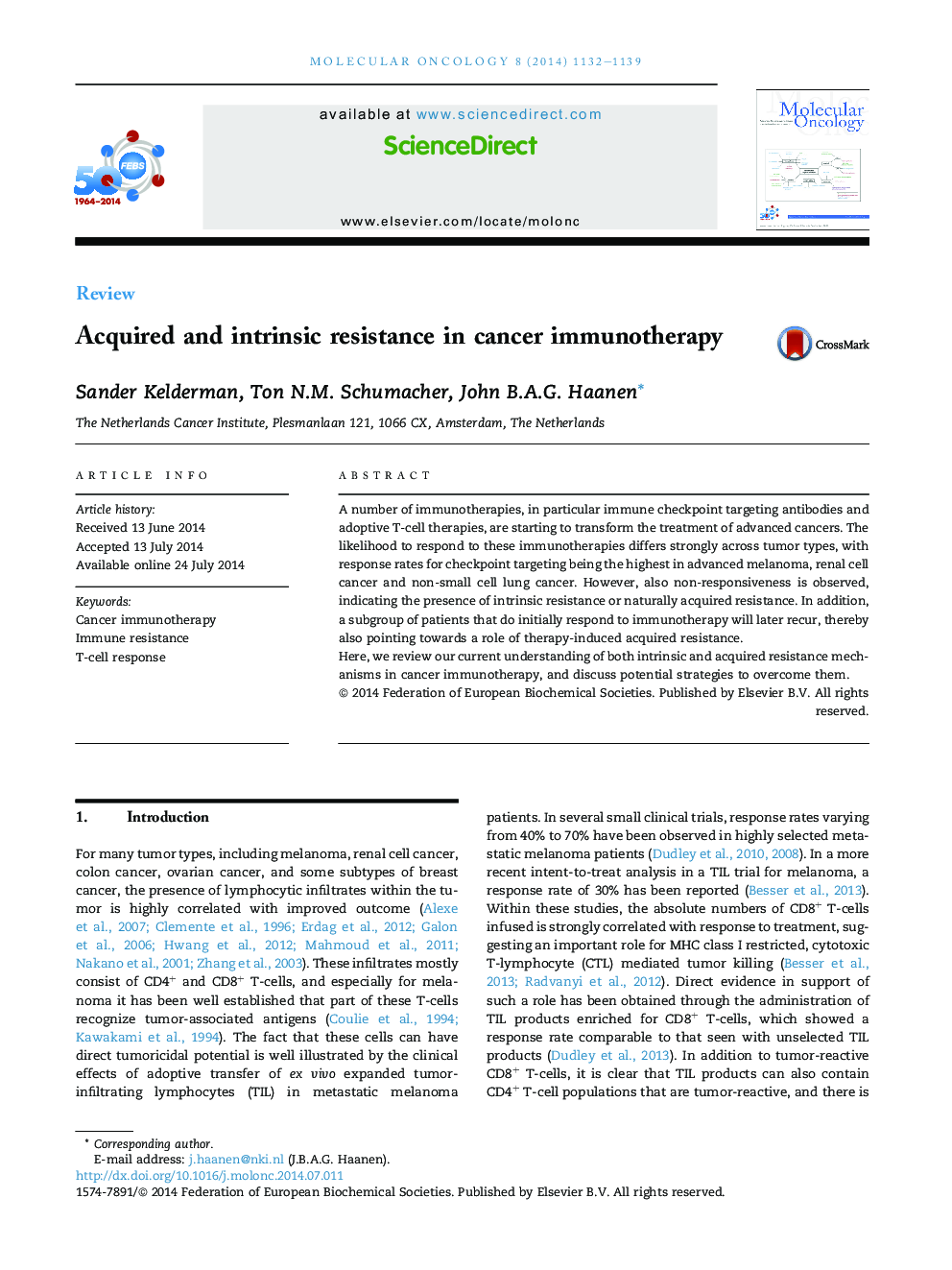| Article ID | Journal | Published Year | Pages | File Type |
|---|---|---|---|---|
| 2145572 | Molecular Oncology | 2014 | 8 Pages |
•Intrinsic and acquired immune resistance determine the efficiency of cancer immunotherapy.•An effective immune response requires T-cell activation, homing and effector function.•The development of immune resistance can be evaluated on the basis on these three requirements.•A personalized approach to assess immune resistance is likely to increase the efficacy of immunotherapy.
A number of immunotherapies, in particular immune checkpoint targeting antibodies and adoptive T-cell therapies, are starting to transform the treatment of advanced cancers. The likelihood to respond to these immunotherapies differs strongly across tumor types, with response rates for checkpoint targeting being the highest in advanced melanoma, renal cell cancer and non-small cell lung cancer. However, also non-responsiveness is observed, indicating the presence of intrinsic resistance or naturally acquired resistance. In addition, a subgroup of patients that do initially respond to immunotherapy will later recur, thereby also pointing towards a role of therapy-induced acquired resistance.Here, we review our current understanding of both intrinsic and acquired resistance mechanisms in cancer immunotherapy, and discuss potential strategies to overcome them.
